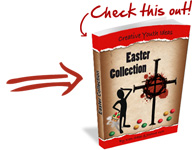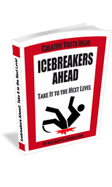In general, each new day is like the one before. There really is no reason why New Year’s Day should be any different than the rest of the days of the year. There is no difference between December 31 and January 1. Nothing special occurs at midnight on December 31. But for many, the New Year is a day to reflect on the past and look to the future. In fact the name of the first month of the year, January, is derived from Janus, a two faced Roman deity that looked both backwards and forward at the same time. January 1st is a time of new beginnings, of getting a fresh start, of letting go of the things from the past that might hold us back and pressing forward.
If that sounds familiar, you might recognise it as a concept, not unique to the Romans but a Biblical concept as well. From the very beginning God appointed the 7th day as a day of rest, a day of renewal to begin a new week. Later God commanded a day of atonement, which allowed anyone to start with a clean slate for a new year. There was even a year of jubilee during which all inheritances were restored, all slaves freed, and everyone was given an opportunity for a new beginning.
“Let us throw off everything that hinders and the sin that so easily entangles, and let us run with perseverance the race marked out for us.” Hebrews 12:1 (NIV)
“Not that I have already obtained all this, or have already arrived at my goal, but I press on to take hold of that for which Christ Jesus took hold of me. Brothers and sisters, I do not consider myself yet to have taken hold of it. But one thing I do: Forgetting what is behind and straining toward what is ahead, I press on toward the goal to win the prize for which God has called me heavenward in Christ Jesus.” Philippians 3:12-14 (NIV)
In Luke 18:18-27, Jesus is asked by a rich young ruler, what he needed to do to inherit eternal life. When Jesus responded he mentioned the keeping of the 10 commandments. The man replied that he had kept them all. Then Jesus said there was still one thing he needed to do – to sell all he owned and Follow Jesus. There was one thing that stood between him and God. For him it was his money.
It is a fitting story for the New Year. At this time of the year people are making lists of commitments of things to do – New Year’s Resolutions. In a way they are personal commandments of do’s and don’ts. But maybe instead of making a long list we need to look at the one things that stands between us and all that God has planned for us. For some it might be the same as the rich young ruler – riches. For others it may be a variety of things. I wonder what that one thing is that would bring you closer to God in the New Year?
What are some of the goals or resolutions that people make for the New Year?
According to the University of Scranton Journal of Clinical Psychology, December 13, 2012 edition, the top ten resolutions for 2012 were:
- Lose Weight
- Getting Organized
- Spend Less, Save More
- Enjoy Life to the Fullest
- Staying Fit and Healthy
- Learn Something Exciting
- Quit Smoking
- Help Others in Their Dreams
- Fall in Love
- Spend More Time with Family
These things are all GOOD things. But if we were to follow Jesus completely, with nothing standing between us and Him, a good number of these things would become true. If we were to follow God wholeheartedly and depend more on him in the year ahead, there is so much more God could do in our lives.
Jesus wasn’t against wealth. He was against anything that holds us back from God. For the rich young ruler great wealth was the ‘one thing’ that stood between him and God.
What are some other things that might stand between a person and God?
So what is your ‘one thing’?
Before we focus on that one thing, there is a final thing to remember from this passage. It is found in verse 27.
“With God all things are possible.”
Of those that do make New Year Resolutions, most fail. Some last a week, some last a month, but virtually none will last till the end of the year. That’s because we need God to make lasting change in our lives. We cannot do it alone. And if we do fail along the way, there’s nothing stopping us from confessing and picking ourselves up again then and there to continue on the journey. We don’t need to wait till the end of the New Year.
Pray for God’s help to give up your ‘one thing’ to Him so that you can not only be closer to Him, but so he can bring about even more change in your life over the next year.
Pray Philippians 1:9-11 into your life “And this is my prayer: that your love may abound more and more in knowledge and depth of insight, so that you may be able to discern what is best and may be pure and blameless for the day of Christ, filled with the fruit of righteousness that comes through Jesus Christ—to the glory and praise of God.”
Isaiah 43:18-19 “Forget the former things; do not dwell on the past. See, I am doing a new thing! Now it springs up; do you not perceive it? I am making a pathway in the wilderness and streams in the desert.”
Take it to the Next Level
Have youth write that one thing on a piece of paper. Ask them why to write down why that one thing stands between them and God. Then ask them to write a letter to themselves about how God might encourage them and help them to make him more important in their life of the course of the next year. Then give each an envelope to seal the letter inside. Have them write their name and address on the front of their envelope. Then on their birthday or another special day during the next year, send them the letter.
“Until you commit your goals to paper, you have intentions that are seeds without soil.”
— Anonymous
“But seek first the kingdom of God and his righteousness, and all these things will be added to you” Matthew 6:25-34
Additional Verses
Here are some verses to contemplate for the New Year. As your youth are writing, you may wish to make them into a slideshow presentation or write them out on flipchart paper and stick them up around the room. You might also want to consider using them to encourage your youth or as theme verses for the upcoming year.
“I am the vine; you are the branches. If a man remains in me and I in him, he will bear much fruit; apart from me you can do nothing.” (John 15:5)
“Create in me a clean heart, O God, and renew a right spirit within me. Cast me not away from your presence, and take not your Holy Spirit from me.” (Psalm 51:10-11)
“And above all these put on love, which binds everything together in perfect harmony. And let the peace of Christ rule in your hearts, to which indeed you were called in one body. And be thankful.” (Colossians 3:14-15)
“Not that I have already obtained this or am already perfect, but I press on to make it my own, because Christ Jesus has made me his own. Brothers, I do not consider that I have made it my own. But one thing I do: forgetting what lies behind and straining forward to what lies ahead, I press on toward the goal for the prize of the upward call of God in Christ Jesus. Let those of us who are mature think this way, and if in anything you think otherwise, God will reveal that also to you.” (Philippians 3:12-15)
“Bear with each other and forgive whatever grievances you may have against one another. Forgive as the Lord forgave you.” (Colossians 3:13)
“Do you not know that your body is a temple of the Holy Spirit, who is in you, whom you have received from God? You are not your own; you were bought at a price. Therefore honor God with your body.” (1 Corinthians 19:20)
“The most important one,” answered Jesus, “is this: ‘Hear, O Israel, the Lord our God, the Lord is one. Love the Lord your God with all your heart and with all your soul and with all your mind and with all your strength.’ The second is this: ‘Love your neighbor as yourself.’ There is no commandment greater than these.” (Mark 12:29-31)
“How can I repay the LORD for all his goodness to me?” (Psalm 116:12)
“I can do everything through him who gives me strength.” (Philippians 4:13)
“Therefore, if anyone is in Christ, he is a new creation; the old has gone, the new has come!” (2 Corinthians 5:17)
“May he give you the desire of your heart and make all your plans succeed.” (Psalm 20:4)
“Because of the LORD’s great love we are not consumed, for his compassions never fail. They are new every morning; great is your faithfulness. I say to myself, “The LORD is my portion; therefore I will wait for him.” (Lamentations 3:22-24)
“Create in me a pure heart, O God, and renew a steadfast spirit within me.” (Psalm 51:10)
“I will sprinkle clean water on you, and you will be clean; I will cleanse you from all your impurities and from all your idols. I will give you a new heart and put a new spirit in you; I will remove from you your heart of stone and give you a heart of flesh. And I will put my Spirit in you and move you to follow my decrees and be careful to keep my laws.” (Ezekiel 36:25-27)
“For I know the plans I have for you,” declares the LORD, “plans to prosper you and not to harm you, plans to give you hope and a future.” (Jeremiah 29:11)
“Commit to the LORD whatever you do, and your plans will succeed.” (Proverbs 16:3)
“Many are the plans in a man’s heart, but it is the LORD’s purpose that prevails.” (Proverbs 19:21)
“Flee the evil desires of youth, and pursue righteousness, faith, love and peace, along with those who call on the Lord out of a pure heart.” (2 Timothy 2:22)
“Therefore, I urge you, brothers, in view of God’s mercy, to offer your bodies as living sacrifices, holy and pleasing to God-this is your spiritual act of worship. Do not conform any longer to the pattern of this world, but be transformed by the renewing of your mind. Then you will be able to test and approve what God’s will is-his good, pleasing and perfect will.” (Romans 12:1-2)
“Give thanks to the LORD, for he is good; his love endures forever.” (1 Chronicles 16:34)
“Surely goodness and love will follow me all the days of my life, and I will dwell in the house of the LORD forever.” (Psalm 23:6)
“Trust in the LORD with all your heart and lean not on your own understanding; in all your ways acknowledge him, and he will make your paths straight.” (Proverbs 3:5-6)
“And we know that in all things God works for the good of those who love him, who have been called according to his purpose.” (Romans 8:28)
“Finally, brothers, whatever is true, whatever is noble, whatever is right, whatever is pure, whatever is lovely, whatever is admirable-if anything is excellent or praiseworthy-think about such things.” (Philippians 4:8)
“But in your hearts set apart Christ as Lord. Always be prepared to give an answer to everyone who asks you to give the reason for the hope that you have.” (1 Peter 3:15)
“Let us hold unswervingly to the hope we profess, for he who promised is faithful.” (Hebrews 10:23)
“For when you did awesome things that we did not expect, you came down, and the mountains trembled before you. Since ancient times no one has heard, no ear has perceived, no eye has seen any God besides you, who acts on behalf of those who wait for him.” (Isaiah 64:3-4)
“Let us examine our ways and test them, and let us return to the Lord” (Lamentations 3:40).
“Let us not grow weary of doing good, for in due season we will reap, if we do not give up” (Gal. 6:9).




